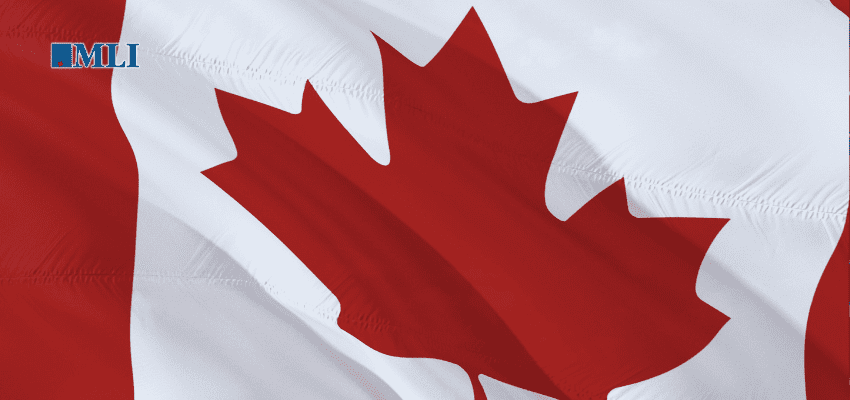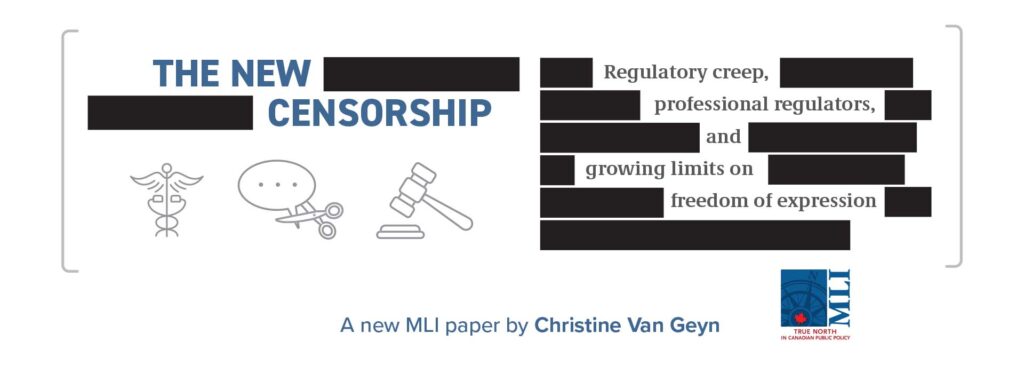This article originally appeared in the Hub.
By Peter Copeland, October 21, 2024
Ask someone to describe a Canadian, and they will likely use words like “polite” or “moderate.” Unlike our brash neighbours to the south, Canadians are less inclined to extremes. We prefer the status quo.
If these cliches are true, then why is Canada today on the extreme Left on so many social issues?
For example, why, compared to other Western nations, is Canada so vehemently opposed to privately funded necessary medical care? Assisted suicide is the country’s fifth-leading cause of death, and no federal laws restrict abortion. In 2023, immigration surged by 471,771, resulting in a 3.2 percent population growth—three times higher than any OECD country. Courts overturn sentences for sexual assault against minors, child luring, and child pornography in the name of empathy for criminals viewed as victims, while drug distribution without recovery treatment is viewed as compassionate.
Yet, most Canadians don’t support the ideologies underlying these phenomena. Like Americans and Brits, they oppose racial preferences in schools, the prioritization of gender self-identification over biological sex, and gender reassignment surgery for minors. They believe political correctness has gone too far and reject the idea that Canada is fundamentally racist or “settler colonialist.”
Despite widespread discontent over social and cultural issues, political and mainstream responses have been ineffective.
Should we look to the U.S., where debates are more polarized? In September, I joined thought leaders Eric Kauffman and Chris Rufo in Vancouver for a robust discussion about the front-line fight against the woke ideologies that are undermining Western societies. Rufo has influenced U.S. laws by challenging critical race theory, gender ideology, and diversity, equity, and inclusion (DEI) policies. What lessons can we apply in Canada?
Do we need our own march back through the institutions—a counter-activism? Or should we focus on grassroots efforts, modelling values? Is there a uniquely Canadian way to address these issues, balancing forthrightness with respect and charity?
Many born in the ‘80s and onward—like Rufo and me, both “elder millennials”—have grown up in a Western world increasingly uncertain of itself, disconnected from the values that once made it globally admired.
Young people are realizing that the principles driving social progress—freedom, the rule of law, democracy, the belief in life’s meaning, the importance of family, and the pursuit of truth, beauty, and goodness—are not self-sustaining. These ideals must be nurtured and refined. In today’s culture of expressive individualism and liquid modernity, where radical autonomy and rapid change dominate, people are becoming rootless, disconnected from family and human nature, and constructing their own transient morality and values. Freedom is distorted into mere licence, and equality is reduced to erasing norms for blanket affirmation.
A cultural elite has taken a “long march” through institutions, promoting a vision of “equity.” Marxist class struggle has shifted to the cultural sphere. Today’s elites seek not to control the means of production but to dismantle ideas, paradigms, and institutions they view as manifestations of power, replacing them with new ones of their own making. These attitudes have infiltrated schools, universities, boardrooms, and government.
Yet not everyone wants to deconstruct math as “logocentric,” promote gender questioning in schools, or racialism under DEI. How have these ideas become dominant?
Human nature drives conformity and groupthink, and the contemporary emphasis on equal recognition of diverse lifestyles clashes with the desire for merit-based respect. In Canada, our tolerance, politeness, and reluctance to stand out intensify this dynamic.
However, the real influence lies with the intellectual and professional managerial classes. They shape and implement these ideas in more conventional, subdued forms, giving them mainstream appeal.
Unrestricted choice in the name of autonomy has become the ultimate value for Canada’s cultural and political elites.
As a liberal democracy, many Canadians share this dedication to soft cultural libertarianism, particularly the highly educated, who strive to appear caring and compassionate. Motivated by guilt over their own prosperity and privilege, they often view progressive ideas as harmless and, in their search for meaning amid declining faith, virtuous.
This manifests in support for DEI, tokenistic land acknowledgments, and efforts to combat capitalism’s ravages on the environment by biking instead of driving, among other showy but insubstantial practices and policies. Because these ideas resonate with Canadians’ desire to be seen as nice and morally responsible, they have come to dominate our culture and institutions with hardly any pushback. Those who don’t agree still go along with them, afraid of being cancelled and losing their jobs and livelihoods.
This overall movement follows a pattern: the radical pursuit of equity for the marginalized, middle-class compassion-seeking, and the libertarian impulse to extend individual freedom and self-expression in the pursuit of self-created autonomy all merge to produce policies that struggle to establish appropriate limits, like gender reassignment surgery for minors, MAID on demand (soon for mental illness), drug supplies without meaningful treatment, high immigration levels, and a revolving door of justice.
Yet, the tide is shifting in Canada as people become increasingly aware of the consequences of ideas. Dissatisfaction with wokeness is on the rise, yet many feel politically homeless; half of Canadians believe no party truly represents them, and a third view the major parties as too extreme, perhaps reacting against both left-wing activism and right-wing bravado.
This moment calls for two crucial actions: first, politicians and changemakers must draw clear connections between woke ideology and society’s current ills. Second, we need a compelling moral language that offers a positive vision for addressing social issues.
We need to propose an alternative to wokeness in public discourse. Instead of “diversity, equity, and inclusion,” we should promote “dignity, equality, and solidarity,” or “merit, equality, and fairness.” As Rufo argues, people prefer colour-blind equality to racialist equity.
In addiction treatment, the language of recovery-oriented care leading to abstinence could replace harm reduction policies.
In the face of mental health struggles and social instability resulting from a breakdown of moral authority and standards, we can promote the noble pursuit of truth and the good life over the navel-gazing search for authenticity. As the latest science and millennia of Western thought alike attest to, true happiness comes from living virtuously, nurturing relationships, and seeking transcendent experiences—not from fame, wealth, or pleasure.
Rufo’s success shows that politely asking for a little more free speech is ineffective. For those who see debate as dangerous, even a little free speech feels threatening.
It’s encouraging that more politicians are now addressing cultural issues. They should do so forthrightly, leading boldly by example.
People are drawn to the most attractive vision of the good life—one rooted in love, happiness, and human dignity. Canada and the U.S. have been historically appealing for these reasons. We must defend them.







